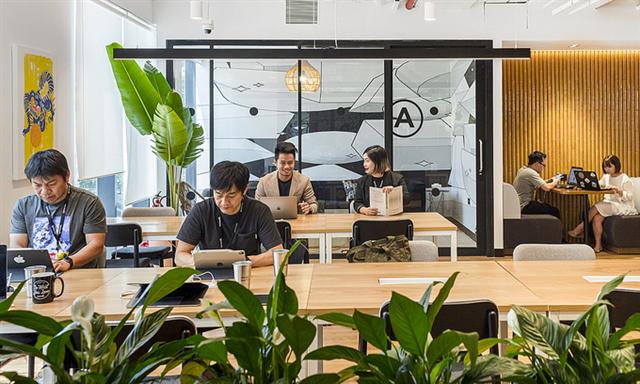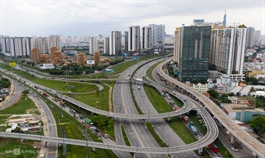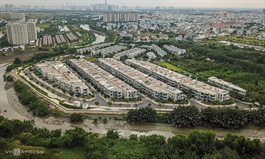Coworking space companies respond to Covid with new solutions
Coworking space companies respond to Covid with new solutions
Coworking space operators in Vietnam have launched a number of Covid response services and even prepared for expansion after the pandemic is controlled.
Staff work at a coworking space in HCMC's District 1. Photo by VnExpress/Nhi Chau.
|
This month Dreamplex, which has five coworking spaces in Hanoi and HCMC, unveiled a service called temporary office for companies with a payroll of at least four.
With three facilities in HCMC, cirCo recently provided an online meeting solution for firms that lack equipment and technicians.
A few days before HCMC mandated social distancing in early June, Toong inaugurated a new 1,250sq.m coworking space in District 3 after an earlier one in March in District 1.
Its CEO, Duong Do, said 75 percent of the new office in District 3 was booked even before it opened.
"The pandemic has helped us become sharper and more flexible in designing our services," he said.
Early last year, Toong’s occupancy rate was 80 percent in HCMC and 70 percent in Hanoi, but since mid-2020 they have risen sharply.
The number of clients in the capital has tripled during the pandemic, with revenues rising by some 15 percent in 2020, Do said.
Balder Tol, WeWork’s general manager for Australia and Southeast Asia, told VnExpress that demand for coworking space has been on the rise.
The first Covid wave in Vietnam last year only slightly affected demand as many enterprises allowed their staff to work from home.
However, when the pandemic prolonged, they began to pay attention to coworking spaces, and small companies now tend to seek flexible working spaces instead of traditional ones, he said.
Some coworking space operators are ready to expand. Toong is about to open a new facility in HCMC and planning more in Hanoi and Da Lat and to cooperate with Wink Hotels for three projects in Da Nang and Can Tho.
Dreamplex has announced plans to open a new facility each in HCMC’s Thu Duc City in October and District 4 in November.
But the firms face challenges in achieving sustainable growth since serviced offices are more suitable for startups or enterprises with a workforce of 30 or fewer, according to property experts.

























